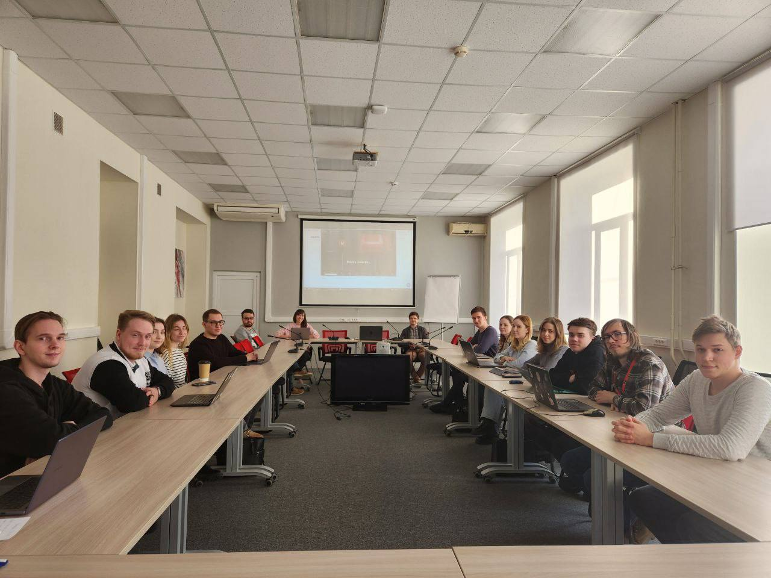
XII International Conference on Applied Research in Economics "iCare" convenes at HSE University in Perm
On October 30th-31st, the Perm campus of the National Research University "Higher School of Economics" (HSE) hosted researchers from 16 Russian and 9 international universities for the XII International Conference on Applied Research in Economics "iCare." The two-day event focused on internationalization in emerging economies, featuring key presentations from Professor Kazi Sohag, Head of the Laboratory of International and Regional Economics at Ural Federal University (h-index 41), and Professor Kayhan Tajeddini of Tokyo International University's Department of Strategic Management and International Business.

Researchers from the HSE — Perm participated in the V International Pacific School-Conference on Experimental Economics
Employees of the International Laboratory of Intangible-driven Economy from the HSE — Perm took part in the V International Pacific School-Conference on Experimental Economics held at Far Eastern Federal University (FEFU) from September 21 to October 1, 2025.

‘A Space Where You Can Ask Questions and Make Mistakes’
Regular, long-term seminars are an important part of the work of HSE research teams. Petr Parshakov, Professor at the School of Economics and Finance of the Faculty of Computer Science, Economics, and Social Sciences at HSE University–Perm and Head of the International Laboratory of Intangible-Driven Economy, talks about the laboratory’s regular seminars: why such meetings are needed, how they are organised, the secret of successful seminars, and the place seminars hold today in academic life.

Civic Identity Helps Russians Maintain Mental Health During Sanctions
Researchers at HSE University have found that identifying with one’s country can support psychological coping during difficult times, particularly when individuals reframe the situation or draw on spiritual and cultural values. Reframing in particular can help alleviate symptoms of depression. The study has been published in Journal of Community Psychology.

Scientists Clarify How the Brain Memorises and Recalls Information
An international team, including scientists from HSE University, has demonstrated for the first time that the anterior and posterior portions of the human hippocampus have distinct roles in associative memory. Using stereo-EEG recordings, the researchers found that the rostral (anterior) portion of the human hippocampus is activated during encoding and object recognition, while the caudal (posterior) portion is involved in associative recall, restoring connections between the object and its context. These findings contribute to our understanding of the structure of human memory and may inform clinical practice. A paper with the study findings has been published in Frontiers in Human Neuroscience.

Researchers Examine Student Care Culture in Small Russian Universities
Researchers from the HSE Institute of Education conducted a sociological study at four small, non-selective universities and revealed, based on 135 interviews, the dual nature of student care at such institutions: a combination of genuine support with continuous supervision, reminiscent of parental care. This study offers the first in-depth look at how formal and informal student care practices are intertwined in the post-Soviet educational context. The study has been published in the British Journal of Sociology of Education.

Applications Open for Student Research Paper Competition 2025
The annual Student Research Paper Competition (SRPC) offers students the chance to showcase their work, such as term papers or theses. It is a valuable opportunity to receive expert feedback and recommendations aimed at improving research, as well as to take the first steps in an academic career. Below we outline the key features and deadlines for submitting entries.

Russian researchers presented their work at the International Conference of the Eurasian Business and Economics Society in Istanbul
The 52nd International Scientific Conference of the Eurasia Business and Economics Society EBES (Eurasia Business and Economics Society) was held in Istanbul from July 3 to 5, 2025, bringing together scholars from dozens of countries who presented about 200 papers. The participants presented their research in corporate finance, labor economics, innovation, marketing, corporate strategies and risk management.

HSE University in Perm hosted a seminar on the RSF project "Comparative Analysis of AI and Real Individuals in Economic Decisions."
On June 24, 2025 at the HSE University in Perm began a summer series of workshops under RNF Grant 25-18-00539: “Comparative Analysis of Behavior of Artificial Intelligence-Based Agents and Real Individuals in Economic Decision-Making” led by Petr Parshakov.

Researchers from HSE University in Perm Teach AI to Analyse Figure Skating
Researchers from HSE University in Perm have developed NeuroSkate, a neural network that identifies the movements of skaters on video and determines the correctness of the elements performed. The algorithm has already demonstrated success with the basic elements, and further development of the model will improve its accuracy in identifying complex jumps.

